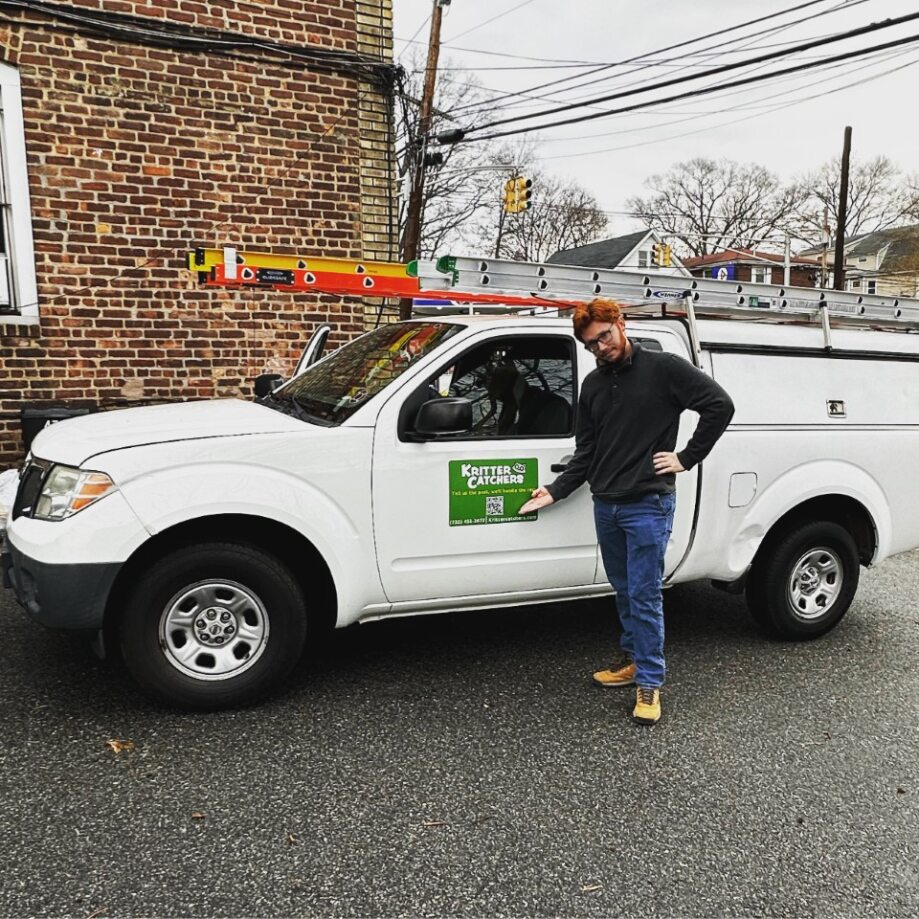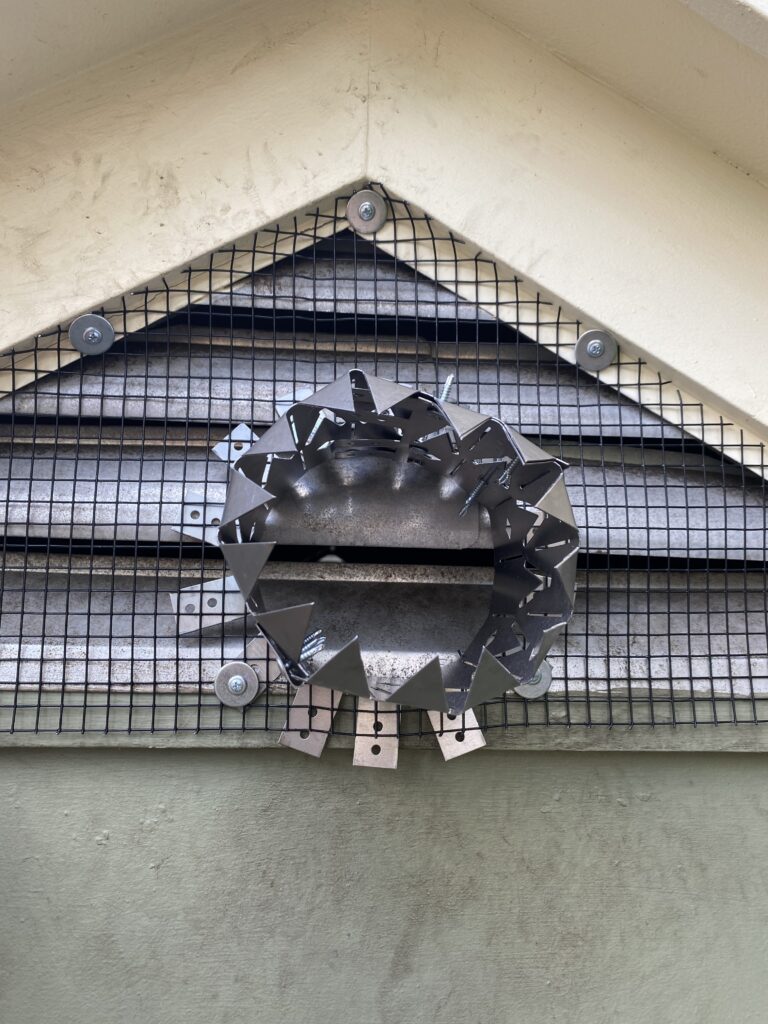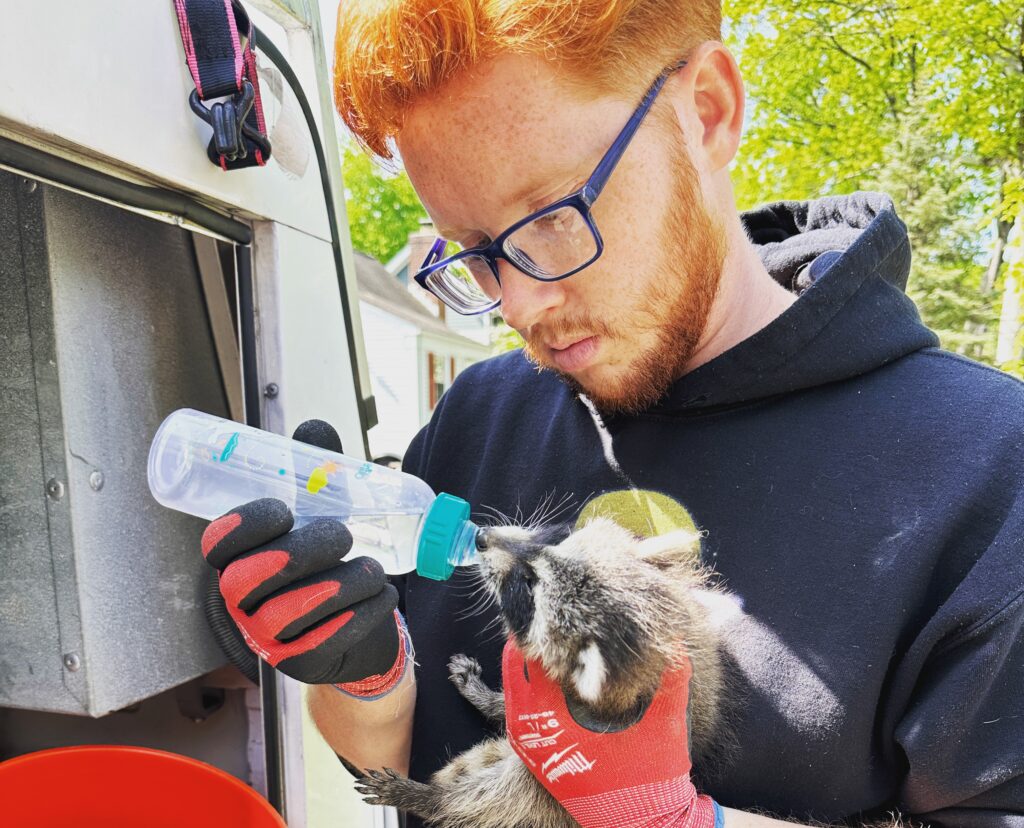In the picturesque landscapes of New Jersey, residents often find themselves sharing their neighborhoods with various forms of wildlife, including the elusive and occasionally troublesome skunk. As charming as these creatures might appear from a distance, their presence near human habitats can pose challenges, necessitating a comprehensive approach to Skunk Removal in New Jersey.
Skunks, with their distinctive black and white fur and well-known defensive spray, often find refuge in residential areas, presenting a unique set of concerns for homeowners. The importance of effective Skunk Removal in NJ cannot be overstated, as these animals can cause property damage, carry diseases, and create an overall nuisance. It becomes imperative for residents to understand the nuances of skunk behavior, recognize signs of their presence, and engage in proactive measures to ensure a harmonious coexistence.
In this article, we delve into the essential steps for Skunk Removal in New Jersey, emphasizing the need for a systematic and humane approach to address skunk-related challenges. From understanding skunk behavior to implementing preventive measures and collaborating with wildlife experts, we explore a holistic strategy that promotes both the well-being of residents and the ethical treatment of these fascinating yet occasionally problematic neighbors. Let us embark on a journey to uncover the intricacies of Skunk Removal in NJ and ensure a safer, more harmonious living environment for all.
Key Takeaways
- Recognizing signs of skunk activity early on allows for prompt and effective intervention.
- Opt for humane skunk removal methods to ensure the well-being of these creatures and maintain ethical wildlife practices.
- Adhere to local regulations when engaging in skunk removal in New Jersey to avoid legal consequences and promote responsible wildlife management.
- Seal entry points, eliminate attractants, and educate yourself on skunk-proofing measures to prevent future infestations.
- Engage with wildlife professionals for their expertise, ensuring a more informed and successful approach to skunk removal.
Understanding Skunk Behavior
To effectively address the challenges associated with Skunk Removal in New Jersey, it is crucial to gain insights into the behavior of these unique creatures. Skunks, known for their distinctive black and white markings and potent spray, exhibit specific habits and habitats that necessitate a nuanced approach.
In the diverse landscapes of New Jersey, skunks are often found in suburban and rural areas, seeking shelter in crawl spaces, under decks, or even within abandoned structures. Understanding these preferred habitats is key to identifying potential areas of concern around homes and devising strategies for Skunk Removal in NJ.
Skunks are primarily nocturnal animals, preferring to be active during the night. This behavior, coupled with their relatively shy nature, means that homeowners may not always directly encounter these creatures. However, signs of their presence, such as digging or burrowing, become apparent. Recognizing these indicators becomes paramount in the proactive assessment of a potential skunk infestation, guiding residents in the subsequent steps of removal and prevention.
Assessing the Situation
Assessing the situation is a crucial step in the comprehensive process of Skunk Removal in New Jersey. Homeowners, upon suspecting or confirming the presence of skunks in their vicinity, must undertake a thorough examination of their property to gauge the extent of the issue.
Conducting a meticulous inspection involves identifying potential entry points that skunks might exploit to gain access to crawl spaces, basements, or other secluded areas. Examining these vulnerable areas aids in understanding how and where skunks are entering the property, laying the groundwork for effective Skunk Removal in NJ.
Furthermore, it is essential to determine the scale of the skunk population on the premises. Are these solitary individuals seeking temporary shelter, or is there evidence of a more established presence? By discerning the scope of the infestation, residents can tailor their removal strategies accordingly, ensuring a targeted and efficient approach to addressing the situation.
This hands-on assessment not only facilitates the identification of immediate concerns but also guides homeowners in implementing preventative measures to thwart future skunk intrusions. Through a keen evaluation of the situation, individuals can take proactive steps toward achieving a skunk-free environment in New Jersey.
Implementing Preventive Measures
Implementing preventive measures is a pivotal aspect of managing Skunk Removal in New Jersey effectively. Once homeowners have assessed the situation and identified potential vulnerabilities, the next step involves fortifying the property against future skunk encounters.
Securing entry points is paramount in preventing skunks from accessing crawl spaces, basements, or other secluded areas around homes. By sealing off these potential openings, residents in New Jersey create a deterrent for skunks, mitigating the risk of infestation and reducing the need for subsequent Skunk Removal in NJ.
Eliminating attractants is another vital component of preventive measures. Skunks are drawn to food sources such as garbage, pet food, and compost. By managing these attractants, residents not only discourage skunks from frequenting their property but also contribute to a cleaner and more hygienic living environment in New Jersey.

Humane Skunk Removal Methods
Engaging in humane skunk removal methods is not only ethically responsible but also ensures the well-being of these creatures while addressing the concerns of Skunk Removal in New Jersey. Recognizing the importance of coexistence, residents can employ strategies that prioritize the safety of skunks and the preservation of ecological balance in the local environment.
One effective approach is to enlist the services of professional wildlife removal experts specializing in Skunk Removal in NJ. These professionals possess the expertise to assess the situation, employ humane trapping methods, and safely relocate skunks to more suitable habitats. By opting for such services, residents contribute to the humane treatment of skunks and adhere to ethical standards in wildlife management.
Moreover, alternatives to lethal methods for population control are gaining prominence in skunk removal practices. Fostering a community culture that values and supports non-lethal approaches, such as habitat modification and deterrents, aligns with the principles of humane wildlife management. In New Jersey, residents can champion the use of these methods to strike a balance between addressing skunk-related concerns and upholding a compassionate approach to wildlife cohabitation.
Legal Considerations
Navigating legal considerations is an integral aspect of Skunk Removal in New Jersey, as residents strive to address skunk-related challenges within the confines of local regulations. New Jersey, like many states, has specific laws governing wildlife removal, emphasizing the importance of compliance and ethical practices in dealing with skunks.
Residents undertaking skunk removal should be aware of regulations that outline permissible methods for addressing wildlife intrusions. Unauthorized actions may not only pose risks to skunks but also lead to legal consequences for individuals involved in such activities. Understanding the legal framework for Skunk Removal in NJ ensures that residents act responsibly and in accordance with established wildlife protection laws.
Moreover, compliance with these regulations contributes to fostering a harmonious relationship between humans and wildlife. By adhering to legal considerations, residents actively participate in preserving the ecological balance and biodiversity of New Jersey. This responsible approach not only safeguards the interests of both residents and skunks but also contributes to the broader goal of sustainable and ethical wildlife management.
Collaboration with Wildlife Experts
Collaborating with wildlife experts is a cornerstone in the comprehensive strategy for Skunk Removal in New Jersey. Recognizing the specialized knowledge and skills required for effective wildlife management, residents in the state can benefit significantly from engaging with professionals who specialize in Skunk Removal in NJ.
Wildlife experts possess a deep understanding of skunk behavior, habitat preferences, and removal techniques. By tapping into their expertise, residents can ensure a more informed and targeted approach to addressing skunk-related challenges around their homes. These experts employ humane and ethical methods, aligning with both legal requirements and a sense of responsibility towards wildlife conservation.
Furthermore, the collaboration with wildlife professionals extends beyond mere removal. They play a vital role in educating residents on preventive measures, offering insights into skunk-proofing homes, and raising awareness about coexisting with wildlife in New Jersey. This collaborative effort fosters a sense of community responsibility, where both residents and experts actively contribute to creating a safe and harmonious environment for all.
Public Awareness and Education
Public awareness and education play a pivotal role in the overarching strategy of Skunk Removal in New Jersey. It is essential to inform residents about skunk behavior, potential challenges, and the significance of adopting proactive measures for Skunk Removal in NJ.
By raising awareness, communities can empower individuals to recognize signs of skunk activity, understand their behavior, and take preventive actions. Public education initiatives can include disseminating information about common entry points, proper waste disposal practices, and the importance of collaborating with wildlife experts for humane removal.
Moreover, fostering a sense of responsibility within the community contributes to a collective effort in maintaining a skunk-free environment. Residents become integral partners in the preservation of local ecosystems, aligning their actions with ethical wildlife management practices in New Jersey.
FAQs
What are common signs of a skunk infestation in my property?
Look out for distinct skunk odor, visible burrows, and paw prints in soft soil.
Is it legal to remove skunks from my property in New Jersey?
Yes, but it’s crucial to comply with local regulations. Consult with wildlife experts to ensure lawful removal.
Can I use repellents to keep skunks away from my property?
There are commercial repellents available, but their effectiveness varies. Consult with wildlife experts for guidance.
Do skunks hibernate, and when are they most active?
Skunks are not true hibernators but may experience reduced activity during colder months. They are primarily nocturnal.
What are the risks of attempting to remove skunks without professional help?
DIY removal may result in injuries, legal consequences, or ineffective solutions. Professional assistance is recommended.
Conclusion
In conclusion, addressing the challenges associated with Skunk Removal in New Jersey requires a holistic and collaborative effort from residents and wildlife experts alike. Through understanding skunk behavior, assessing the situation, and implementing preventive measures, individuals can take proactive steps toward fostering a safer living environment in NJ.
The humane removal methods advocated in this process not only prioritize the well-being of skunks but also contribute to ethical wildlife management practices. Navigating legal considerations further underscores the importance of compliance with local regulations, ensuring that residents engage in responsible and lawful skunk removal in New Jersey.
By collaborating with wildlife experts, communities gain access to specialized knowledge, fostering a sense of community responsibility and contributing to a harmonious coexistence. Public awareness and education serve as foundational elements, empowering individuals to play an active role in maintaining a skunk-free environment.
For professional assistance in Skunk Removal in NJ, we encourage you to take the next step and call Kritter Catchers now at +1-877-468-5748! Together, let’s create a community that values responsible and humane practices in skunk management for a safer and more harmonious New Jersey.


